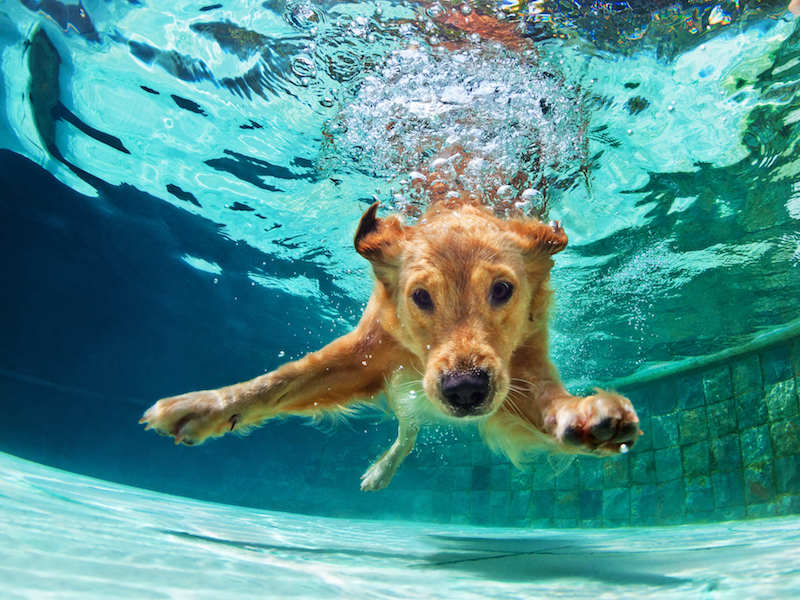
There are many factors which can affect the electrical circuitry of your hearing aids. In fact, you could call moisture kryptonite for hearing aids. Even if you already know that and take care to protect your investment from the shower, pool, or a good face washing, chances are you are missing the most common reason for water damage in hearing aids: humidity.
Invisible moisture has the greatest chance of causing irreparable damage. It’s time to understand more about why humidity is a bad thing for hearing aids.
What is Humidity?
Humidity is a word that gets talked about a lot, especially during the summer months, but what does it mean? PBS describes humidity as water molecules in the air. The relative humidity refers to the ratio of water molecules in the air compared to how many the air can actually hold. When you can feel wetness in the air, that means the relative humidity is high.
People are very sensitive to humidity because sweat is the most effective way to cool the body. When you sweat it evaporates into the air, but that doesn’t happen as fast when the humidity level is high. Electronics are also susceptible to humidity and that is why it has such a detrimental effect on hearing aids.
Why Electronics Have difficulty with Humid Weather
Too high or, too low, humidity can impact your hearing aids. When it’s too damp, the intricate electronics will collect condensation. When it’s too dry things become more brittle.
Internal electronics are the reason your hearing aids work. An advanced audio processing chip manages noise levels in a newer hearing aid. It’s what is behind elegant functions like:
- Noise reduction
- Anti-feedback
- Targeted listening programs
- Digital sound streaming
High humidity causes moisture to collect inside the hearing aids damaging that chip. It can corrode elements inside the casing and ruin batteries also. It’s the equivalent of throwing your hearing aid in a tub of water.
Dealing With Humidity
Water resistant models are currently on the market. Having this feature doesn’t mean you can swim with your hearing aids in place, but it does give some protection against humidity and other weather-related concerns such as getting caught in an unexpected rainstorm or even sweat when you work out.
If you live in an area prone to high humidity, think about getting a room or house dehumidifier to lessen water vapor inside. It’s not only your hearing aid that will benefit, there are health benefits, and other electronic devices in your house will also be protected. Dust mites, mildew, and mold thrive in moist environments so a dehumidifier will improve the quality of breathing as well. However, protecting your hearing aid more completely will require additional thinking. You will need to take other steps at the same time.
Look for the dehumidifier made for hearing aids. They come at all costs levels. Silica gel crystals in a drying kit are used to protect electronics. Moisture is eliminated by putting the hearing aids into the dehumidifier for a couple of hours. There are also storage containers that dry hearing aids out each night as you sleep. If it is very humid and you have no other way, uncooked rice can reduce moisture.
Don’t forget to leave the battery door open when you store your device. By pulling that door open before you put the hearing aid down, you expose the batteries and other elements to the air, allowing any condensation built up to evaporate naturally. Do this all year round, not just in the summer months.
A cool dry place is the ideal for storage. Avoid putting them in the glove compartment, in a hot room or on a table in the sun.
Thinking Past Humidity
Damage can be caused by other types of wetness. Take precautions to protect them from other kinds of wet such as:
- Don’t touch your hearing aids with hands that are still moist from lotion.
- Find a safe place to store your hearing aids if headed for the pool or beach.
- When exercising wear a sweatband. If you are wearing your hearing aid then it’s a good idea in general. Later that sweat will cause problems.
- Try not to put your hearing aid down on wet surfaces. You don’t want to place it in a wet spot left by a glass or coffee cup.
Treat your hearing like the valuable asset that it is. Keep in mind how moisture can damage your hearing aids and make sure to prevent water from getting in them. If your hearing aid already has water damage make an appointment for service with a hearing aid specialist.
